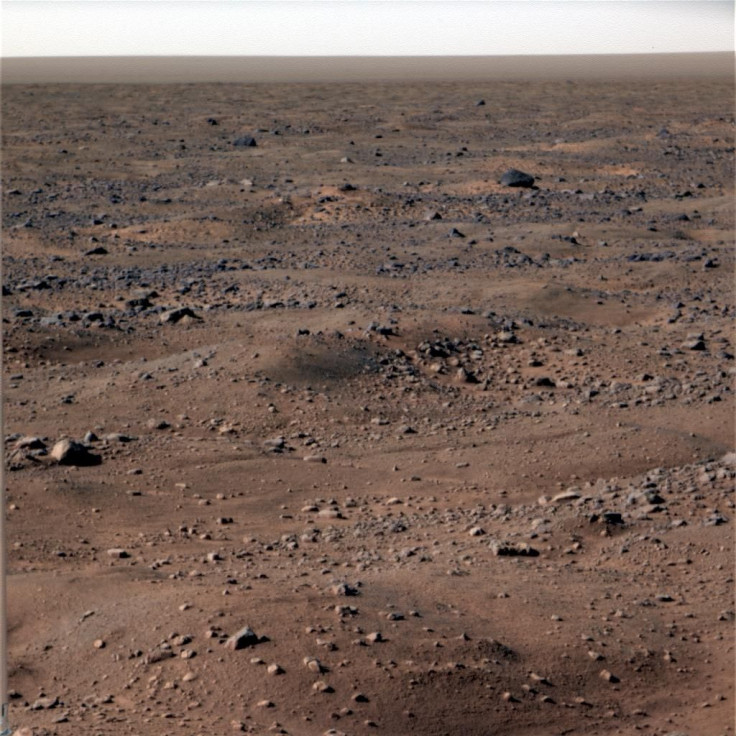NASA Photo Shows A Monkey On Mars; Did Rover Bring It To Red Planet?

A UFO expert claimed that NASA’s photo of Mars’ surface featured an animal that appears to be a monkey. According to the expert, the space agency may have brought a live animal on the Red Planet as part of its experiment regarding the living conditions in the alien environment.
Scott Waring of ET Data Base said he came across the photo through Gigapan, the website of a private company that was founded through a collaborative effort between Carnegie Mellon University in Pennsylvania and NASA’s Ames Research Center. The website features high-definition panoramic images of Mars taken by NASA’s rovers.
According to Waring, the photo has not been tampered with since it came from a highly reputable site. He made the strange discovery after zooming in on the upper portion of the photo.
After closely examining the photo, he came across an image of what appears to be a primate. It closely resembled a monkey examining something on the ground while sitting.
Due to the odd nature of the image, Waring was able to come up with three theories regarding its content. According to the UFO expert, one possible explanation is that the NASA rover that took the photo wasn’t actually on Mars.
He speculated it may have actually taken the picture while roaming around in Canada’s Devon Island, which is known as the largest uninhabited region on Earth. This is also the site of a large crater that’s 14 miles long, which was created by a meteorite impact that happened 39 million years ago.
The second theory that Waring came up with suggests that the creature in the photo is actually an alien lifeform. This coincides with his previous theory about aliens on Mars that are smaller than human beings.
Waring also speculated that the creature may actually be a monkey that was brought by NASA to the Red Planet to experiment on. Since the space agency is planning on sending human expeditions to Mars in preparation for a possible colonization mission, experimenting on an animal could be NASA’s extreme way of testing how Earth-based lifeforms will adapt to the Martian environment.





















